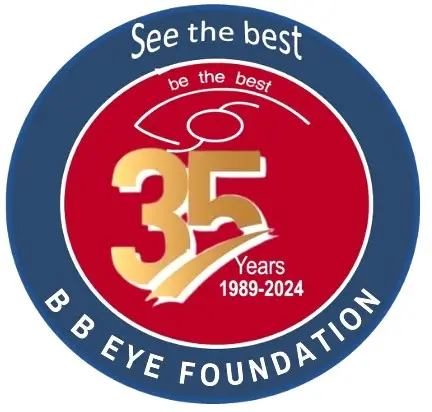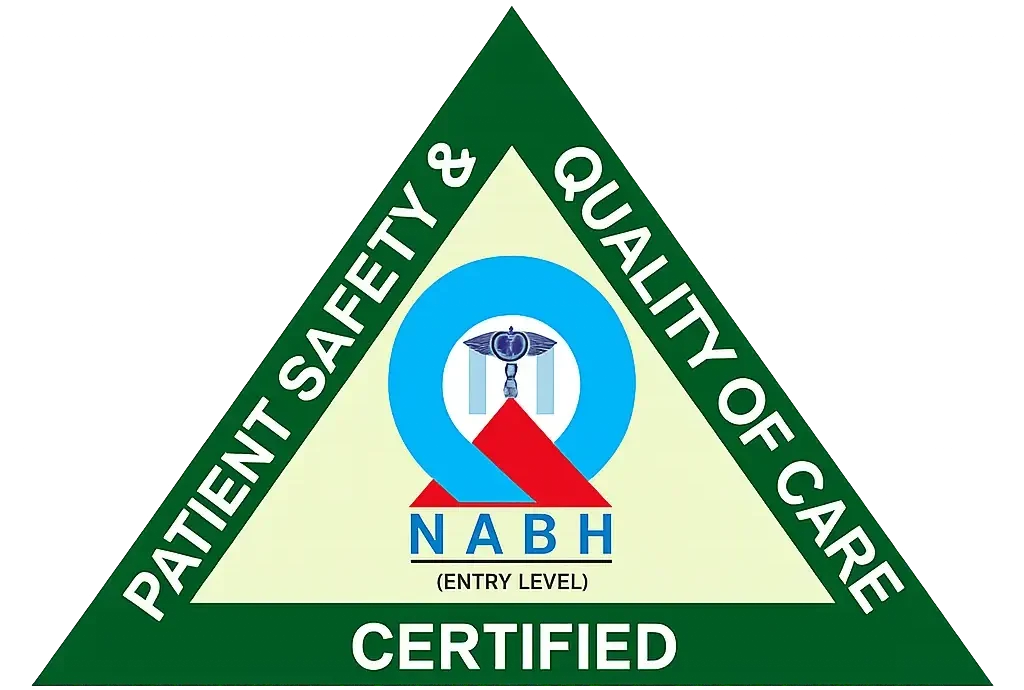|Why choose B B Eye Foundation over others for your cataract surgery?
B B Eye Foundation has pioneered modern cataract surgery in Eastern India with IOL microsurgery in the eighties, phacoemulsification in the nineties and today with micro phaco and laser cataract surgery- providing consistent visual rehabilitation combining the latest in technology with experienced expertise for last 36 years unmatched elsewhere.
|Cataract Services Provided by Us
![]() Phacoemulsification with Foldable IOL:A small corneal incision of 2.8 mm is done. Then the cataract is removed by ultrasonic phacoemulsification probe, and the IOL is implanted.
Phacoemulsification with Foldable IOL:A small corneal incision of 2.8 mm is done. Then the cataract is removed by ultrasonic phacoemulsification probe, and the IOL is implanted.![]() Micro Phaco Surgery: This technique reduces the incision to less than 2 mm. This means that the patient can get his glasses and resume his work faster than the standard phacoemulsification method.. This surgery has all the advantages of the standard coaxial small incision cataract surgery while making smaller incisions. Therefore, patients have quicker wound healing, better postoperative visual sharpness, lower risk of infection, and more stable corneal biomechanics .
Micro Phaco Surgery: This technique reduces the incision to less than 2 mm. This means that the patient can get his glasses and resume his work faster than the standard phacoemulsification method.. This surgery has all the advantages of the standard coaxial small incision cataract surgery while making smaller incisions. Therefore, patients have quicker wound healing, better postoperative visual sharpness, lower risk of infection, and more stable corneal biomechanics .![]() Laser assisted cataract surgery : bladeless phacoemulsification.
Laser assisted cataract surgery : bladeless phacoemulsification.![]() Premium Cataract Surgery Options: IOL options
Premium Cataract Surgery Options: IOL options
Different types of replacement lens (IOLs) are available:
Fixed strength lenses (monofocal) :set for one level of vision, usually distance vision. You will need a light glass or no glass for distance vision, whereas glasses will be required for near work always.
Multifocal lenses :allow two or more different strengths, such as near and distance vision. A small percentage of patients may need a small power occasionally.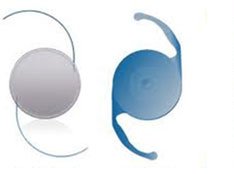

Accommodating lenses :allow the eye to focus on both near and distant objects, in a similar way to the natural human lens.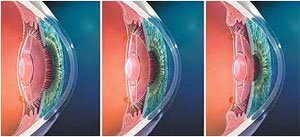
Toric IOLs :are for those who have cylindrical power, also referred to as corneal astigmatism. Your Ophthalmologist will discuss with you what type of lens will suit you.
|What is Cataract?
Cataract is the clouding of the lens inside your eye. It can develop in one or both eyes at the same or different times. One eye can often be more affected than the other.
The crystalline lens is normally clear. It allows light to pass through to the back of your eye, helping you to see sharp images. If parts of the lens become cloudy (opaque), light cannot pass through the cloudy patches. With advancing age, these patches usually become bigger, and more of them develop. As less light is able to pass through the lens, your vision may become blurry or cloudy. The cloudier the lens becomes, the more your sight will be affected.
|Cataract Vision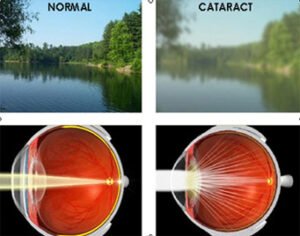
Cataracts are the main cause of impaired vision in the world, especially in developing countries. They affect men and women equally. Cataracts are most commonly found in older people. These are called age-related cataracts. Rarely, babies can have cataracts when they are born, referred to as congenital cataracts.
|What do you feel as cataract progresses?
If your cataracts are mild, you may not notice any symptoms to start with. Blurred, cloudy or misty vision is the most common symptom of age-related cataracts. You may have small spots or dots in your vision – patches where your sight is not as clear. Your sight may be affected by the light. For example, you may find it more difficult to see:
![]() If the light is dim, or
If the light is dim, or![]() When the light is bright, such as on a very sunny day or in bright artificial light. Other ways that cataracts may affect your sight can include:
When the light is bright, such as on a very sunny day or in bright artificial light. Other ways that cataracts may affect your sight can include:![]() The glare from bright lights may be dazzling or uncomfortable to look at,
The glare from bright lights may be dazzling or uncomfortable to look at,![]() Colours may look faded or less clear, and
Colours may look faded or less clear, and![]() Reading, watching TV and other daily activities may be more difficult than they used to be.
Reading, watching TV and other daily activities may be more difficult than they used to be.
If you wear glasses, you may find that they have become less effective. Less commonly, you may see a halo (a circle of light) around bright lights such as car headlights or street lights. A rare symptom of cataracts is double vision (seeing two images of an object instead of one).
|Cataract Causes
What causes Cataract?
The causes of age-related cataracts are not known. Research suggests that some factors may increase the risk that cataracts will develop.
Changes to the lens in the eye
As people grow older, there can be changes to the protein that makes up the lens in the eye resulting in clouding of the lens.
Risk factors
Research suggests that some factors may increase the risk of age-related cataracts developing. For example:
![]() A history of cataracts in your family,
A history of cataracts in your family,![]() Smoking,
Smoking,![]() Lifestyle factors, such as smoking or a poor diet,
Lifestyle factors, such as smoking or a poor diet,![]() Overexposing your eyes to sunlight, and
Overexposing your eyes to sunlight, and![]() Taking steroid medicines for a long time.
Taking steroid medicines for a long time.
Other causes In younger people, cataracts may have other less common causes. For example:
![]() Diabetes (people who have diabetes tend to develop cataracts at an earlier age),
Diabetes (people who have diabetes tend to develop cataracts at an earlier age),![]() Injuries to the eye, and
Injuries to the eye, and![]() Other eye conditions, such as uveitis (inflammation of the uveal tract in the eye).
Other eye conditions, such as uveitis (inflammation of the uveal tract in the eye).
Cataract Treatment With the recent advances in cataract surgery, patients can get their cataracts operated upon when they feel difficulty in performing their daily work. It is a customised procedure with a wide array of Intraocular Lenses to choose from.
![]() Cataracts are treated by having an operation to remove the cloudy lens in your eye and replacing it with an artificial clear lens. This is called an intraocular implant or intraocular lens (IOL).
Cataracts are treated by having an operation to remove the cloudy lens in your eye and replacing it with an artificial clear lens. This is called an intraocular implant or intraocular lens (IOL).![]() In most cases, cataract surgery does not require over night stay. It is usually performed as a “Day Care” procedure wherein the patient comes in for surgery after having put some antibiotic drops in his eyes over the last 1-3 days.
In most cases, cataract surgery does not require over night stay. It is usually performed as a “Day Care” procedure wherein the patient comes in for surgery after having put some antibiotic drops in his eyes over the last 1-3 days.![]() Just before the operation, drops to widen (dilate) your pupil will be applied to your eye. You will also be given a local anaesthetic. This may be applied to your eye as drops, although sometimes injections in the tissue around the eye may be used instead.
Just before the operation, drops to widen (dilate) your pupil will be applied to your eye. You will also be given a local anaesthetic. This may be applied to your eye as drops, although sometimes injections in the tissue around the eye may be used instead.![]() Once the anaesthetic takes effect, you will not be able to feel anything. While the operation is taking place, all you will be able to see is a bright light. You will not be able to see what is happening.
Once the anaesthetic takes effect, you will not be able to feel anything. While the operation is taking place, all you will be able to see is a bright light. You will not be able to see what is happening.
|What happens after your operation?
For most people, vision improves noticeably straightaway, although it may take a little while to settle down completely. The cut in the eye’s surface is so small that it usually heals by itself, although sometimes a small stitch may be needed..
Your doctor will probably advise you to take it easy, for example, by avoiding sports and any vigorous activities. When the operation is done, your plastic lens will be set up for a certain level of vision. After your operation, you will probably need to wear glasses, for example, to see objects that are:
![]() Far away (distance vision), or
Far away (distance vision), or![]() Close to you (near vision).
Close to you (near vision).
If you wore glasses before, your prescription will probably change. It takes several weeks after the operation for your vision to settle down before your optician can give you a new prescription.
|Are there ways to prevent cataract?
NO. It is not possible to prevent cataracts
However, there are some steps you can take to reduce the risk and rate of their developing. For example:
![]() Stopping smoking, and
Stopping smoking, and![]() Protecting your eyes from sunlight, by wearing sunglasses and a hat with a peak or wide brim.
Protecting your eyes from sunlight, by wearing sunglasses and a hat with a peak or wide brim.
It is well-known that a healthy balanced diet is important for your general health – this includes your eyes. Eating a healthy diet cannot prevent cataracts, but some experts think that:
![]() A poor diet may increase the risk of age-related cataracts developing,
A poor diet may increase the risk of age-related cataracts developing,![]() A healthy diet may slow down the growth of age-related cataracts. As part of your healthy diet, remember to eat lots of fresh fruit and vegetables – at least five portions a day
A healthy diet may slow down the growth of age-related cataracts. As part of your healthy diet, remember to eat lots of fresh fruit and vegetables – at least five portions a day
It is important to have your eyes tested regularly by an ophthalmologist, even if you do not wear glasses. This enables cataracts to be picked up early, as well as other eye conditions, such as Glaucoma and age-related macular degeneration.
Other ocular and systemic ailments which complicate cataracts are:
![]() Glaucoma
Glaucoma![]() Post retinal surgery cataracts
Post retinal surgery cataracts![]() Diabetes: People with diabetes tend to develop cataracts at an earlier age than others. If you have diabetes, please follow your diabetologist’s advice closely. This will help to reduce the risk of developing cataracts, as well as other eye problems, such as diabetic retinopathy (a condition that damages the tiny blood vessels that nourish the retina at the back of the eye).
Diabetes: People with diabetes tend to develop cataracts at an earlier age than others. If you have diabetes, please follow your diabetologist’s advice closely. This will help to reduce the risk of developing cataracts, as well as other eye problems, such as diabetic retinopathy (a condition that damages the tiny blood vessels that nourish the retina at the back of the eye).
“Established in 1989, B B Eye Foundation is a leading best eye hospital in Kolkata, India. It offers comprehensive ophthalmic services, including consultations with subspecialty-trained doctors, advanced diagnostics, and surgical procedures like bladeless LASIK, cataract surgery, and treatments for glaucoma and retinal conditions.”





